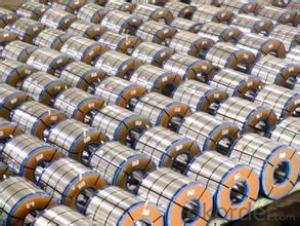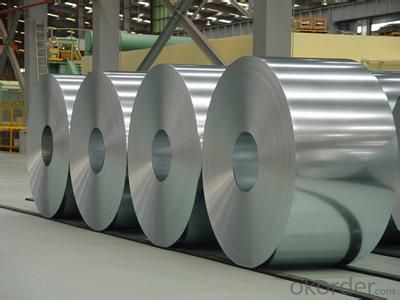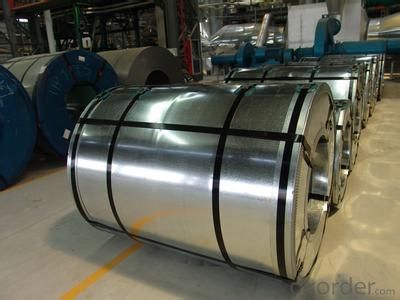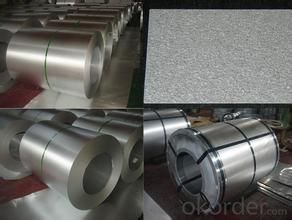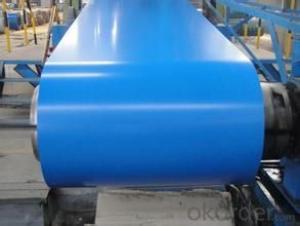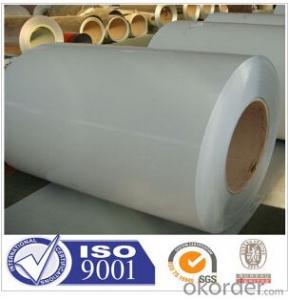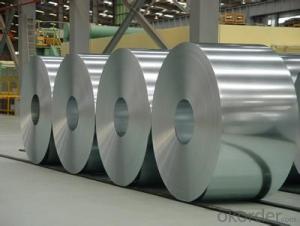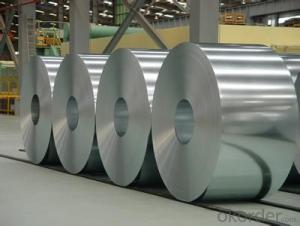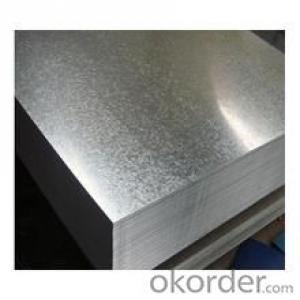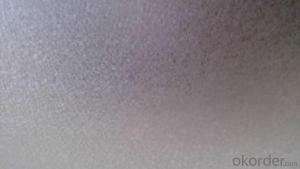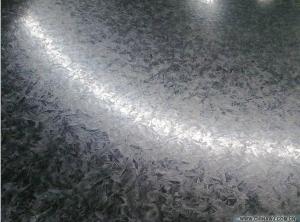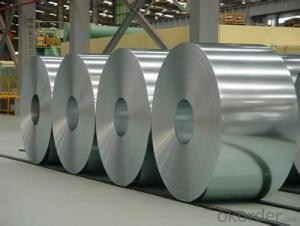Chinese Cheap Hot-dip Aluzinc Steel Building Roof Walls
- Loading Port:
- China main port
- Payment Terms:
- TT OR LC
- Min Order Qty:
- 50 m.t.
- Supply Capability:
- 10000 m.t./month
OKorder Service Pledge
OKorder Financial Service
You Might Also Like
Hot-dip Aluzinc Steel Building Roof Walls
1. Description of the Hot-dip Aluzinc Steel:
Hot-dip aluzinc steel structure is composed of aluminum-zinc alloy, consisting of 55% aluminum, 43% zinc and 2% at 600 ℃ silicon solidification temperature and composition, the entire structure is made of aluminum - iron - silicon - zinc, to form a dense quaternary crystals an alloy.
Hot-dip aluzinc steel has many excellent features: strong corrosion resistance, is three times the pure galvanized sheet; zinc surface with beautiful flowers, can be used as a building outside board.
Applications of hot-dip aluzinc steel:
1)Building: roof, walls, garages, soundproof walls, pipes and modular housing.
2)Automotive: muffler, exhaust pipes, wiper accessories, fuel tank, truck boxes, etc.
3)Appliances: refrigerator back, gas stove, air conditioners, microwave oven, LCD frame, 4)CRT-proof band, LED backlight, electrical cabinets, etc.
5)Farm: barn, sheds, silos, piping and other greenhouse.
6)Other: breaking heat insulation cover, heat exchangers, dryers, warm water, etc.
2.Main Features of the Hot-dip Aluzinc Steel:
• Excellent corrosion resistance
• High temperature oxidation resistance
• High hot reflectance
• Good manufacturability
•Beautiful appearance
•Surface coating
•Cost-effective
3.Hot-dip Aluzinc Steel Images
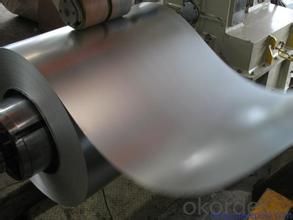
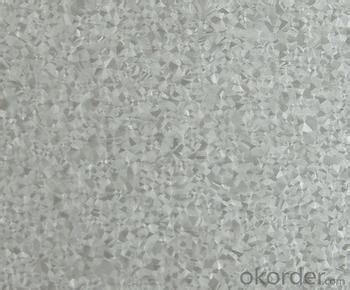
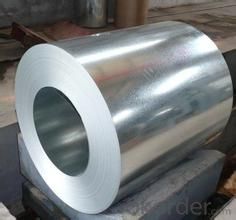
4.Hot-dip Aluzinc Steel Specification
AVAILABLE SPECIFICATION
HOT-DIP ALUZINC STEEL COILS | |
THICKNESS | 0.16mm-3.5mm |
WIDTH | 1250mm MAX |
COATING MASS | 30g/ m2-185 g/ m2 |
SPANGLE | Regular Spangle, Minimized Spangle, Zero Spangle |
SURFACE TREATMENT | Chromated / non-chromated, Oiled / non-oiled, Anti Finger Print |
COIL INNER DIAMETER | 508mm or 610mm |
HOT-DIP ALUZINC STEEL COILS | |||
COMMERCIAL QUALITY | ASTM A792M-06a | EN10327-2004 | JIS G 3321:2010 |
STRUCTURE STEEL | SS GRADE 230 SS GRADE 255 SS GRADE 275 SS GRADE 340 SS GRADE 550 | S220GD+AZ S250GD+AZ S280GD+AZ S320GD+AZ S350GD+AZ S550GD+AZ | SGLC400 SGLC440 SGLC490 SGLC570 |
2.5.FAQ of Hot-dip Aluzinc Steel
We have organized several common questions for our clients,may help you sincerely:
1.What advantages does your company have?
Cement : Annual capacity of 400 million tons, No. 1 in the world
Fiberglass: Annual capacity of 1 million tons fiberglass, No. 1 in the world.
Composite Materials — Carbon Fiber: Annual capacity of 10,000 tons PAN precursor and 4,000 tons carbon fiber, No. 1 in China
Composite Materials — Rotor Blade: Annual production capacity of 15,000 pieces, No.1 in China, Top3 worldwide
Glass: CNBM owns about 20 modern float glass product`ion lines, With annual capacity of 10 million square meters glass.
Light Weight Building Materials: Annual capacity of 1.65 billion square meters of gypsum board, No. 1 in the world.
Commercial concrete: Annual capacity of 0.35 billion cubic meters, No. 1 in the world.
Refractory Material: Annual capacity of 40,000 tons casting refractory, No.1 in the world.
2.What advantages do your products have?
Firstly, our base material is of high quality, Their performance is in smooth and flat surface,no edge wave ,good flexibility.
Secondly, high quality zinc ingoats, 97.5% zinc,1.5% silicon,1% others, the same zinc coating measured by metal coating thickness or by zinc weight
Thirdly, high precision: Tolerance strictly according to ASTM or JISG standard even more rigid.
We have full stes of testing equipment(for t best, cupule,chromatism,salt spray resistance, etc) and professional engineers.
- Q: What are the different types of steel coil packaging machines?
- There are several different types of steel coil packaging machines available in the market. These machines are designed to efficiently and effectively package steel coils for storage, transportation, or distribution. Some of the different types of steel coil packaging machines include: 1. Automatic steel coil packaging machine: This type of machine is fully automated and can handle high-volume packaging requirements. It uses advanced technology to wrap the steel coils with a protective layer of film or paper. The machine can also apply strapping or stretch film to secure the coils during transportation. 2. Semi-automatic steel coil packaging machine: This machine requires some manual intervention to load and unload the steel coils. It is suitable for medium to high-volume packaging needs and offers a good balance between automation and cost-effectiveness. The machine typically uses a combination of wrapping, strapping, and shrinking techniques to package the coils. 3. Vertical steel coil packaging machine: This type of machine is designed specifically for packaging vertical steel coils. It can wrap the coils with a layer of film or paper, and then apply strapping or stretch film to secure them. The vertical design allows for easy loading and unloading of the coils. 4. Horizontal steel coil packaging machine: This machine is ideal for packaging horizontal steel coils. It can wrap the coils with a protective layer of film or paper, and then apply strapping or stretch film to secure them. The horizontal design ensures easy loading and unloading of the coils. 5. Customized steel coil packaging machine: Some manufacturers offer customized packaging solutions based on specific requirements. These machines can be tailored to accommodate different coil sizes, shapes, and packaging materials. They are designed to provide maximum flexibility and efficiency in the packaging process. In summary, the different types of steel coil packaging machines include automatic, semi-automatic, vertical, horizontal, and customized machines. The choice of machine depends on factors such as packaging volume, coil orientation, and specific requirements of the steel coils being packaged.
- Q: How are steel coils used in the manufacturing of metalworking tools?
- Steel coils are used in the manufacturing of metalworking tools by being formed and shaped into various components such as blades, cutting edges, and handles. These coils serve as the primary raw material, which is then processed and treated to create durable and high-quality tools that can withstand the rigors of metalworking processes.
- Q: 420 440 1045 or 1065 ive bought knifes with these steel grades and i want to know which one is better.
- SAE 440 is the best. Classified as high grade cutlery steel. There are various grades of 440: A, B, C, and F. 440 A is the most stain resistant while 440 C has the most carbon and can achieve the highest hardness (Best edge Retention). SAE 440 Chemistry: 16 - 18% Chromium, 0.60 - 1.2% Carbon, 0.75% Molybdenum. SAE 420 is pretty good. Classified as cutlery steel, it is a stain resistant grade but has less chromium and significantly less carbon than SAE 440. SAE 420 Chemistry: 12 - 14% Chromium, 0.15% Carbon (min), 0 Molybdenum Chromium is what makes the steel corrosion resistant. It also adds toughness. Molybdenum adds extra corrosion resistance and adds hardenability. So you can see by chemical components that 440 is highest quality although that also means more cost. 1045 and 1065 are low quality steels and you should probably never use them for a knife. The 1 indicates plain carbon steel with little other alloying elements. The last two digits indicate how much carbon is in the steel. 1045 has 0.45% carbon, mid-range hardenability. 1065 has 0.65% carbon, high hardenability. So if I had to choose I would choose 1065 over 1045 but the difference isn't that noticeable. Everything I said here assumes they have all had the optimum Quench and Temper heat-treatment for their chemistry grade.
- Q: What is the average cost of shipping steel coils?
- The average cost of shipping steel coils can vary depending on various factors such as the distance, weight, size, and mode of transportation. It is recommended to obtain quotes from shipping companies or freight forwarders to get a more accurate estimate based on your specific requirements.
- Q: How are steel coils used in the manufacturing of metal containers?
- Steel coils are used in the manufacturing of metal containers as they are typically unrolled and cut into specific sizes and shapes to form the body of the container. These steel coils provide strength and durability to the containers, making them suitable for storing various products such as food, beverages, chemicals, and more.
- Q: How are steel coils used in the production of metal furniture?
- Steel coils are used in the production of metal furniture as the primary raw material for shaping and forming various components such as frames, legs, and supports. These coils are unrolled and cut into appropriate lengths, then undergo processes like bending, welding, and shaping to create the desired furniture pieces. The strength, durability, and malleability of steel make it an ideal material for constructing sturdy and long-lasting metal furniture.
- Q: Can steel coils be transported by air?
- Yes, steel coils can be transported by air.
- Q: What are the common methods of joining steel coils?
- The common methods of joining steel coils include welding, mechanical fastening (such as bolts or screws), and adhesive bonding.
- Q: What are the different methods of coil cutting for steel coils?
- Coil cutting for steel coils encompasses several methods, each boasting unique advantages and application suitability. The following are some commonly used techniques: 1. Slitting: The most frequently employed coil cutting method involves passing the steel coil through rotating circular blades, resulting in narrower strips. Slitting is ideal for precise dimensions and the production of narrow-width strips. 2. Shearing: Another method, particularly suitable for thicker gauge coils, utilizes a straight blade to cut the coil straight. Shearing is optimal for generating larger width strips and is commonly used with heavier gauge steel coils. 3. Laser Cutting: By employing a high-powered laser beam, laser cutting achieves precise cuts through the steel coil. This technique is renowned for its accuracy and ability to cut intricate shapes and patterns. Laser cutting is often employed for specialized applications where fine details and accuracy are critical. 4. Waterjet Cutting: This versatile method employs a high-pressure jet of water mixed with abrasive particles to cut through the steel coil. It can be used to cut various materials, including steel, and produces clean and precise cuts without heat-affected zones. 5. Plasma Cutting: Plasma cutting employs a high-temperature plasma arc to melt through the steel coil. This efficient technique is well-suited for cutting thick gauges of steel and offers high cutting speeds, making it ideal for industrial applications. 6. Guillotine Cutting: Guillotine cutting utilizes a guillotine-like mechanism to cut through the steel coil. The coil is placed on a table, and a vertically descending blade achieves straight and accurate cuts with minimal burrs. The selection of the coil cutting method depends on factors such as desired strip width and thickness, required precision, production volume, and specific application. To determine the most suitable method for a particular steel coil, it is crucial to consider these factors and consult experts.
- Q: Theirs this two handed chinese sword on amazon with a forged combat steel blade and i was wandering if it means combat steel in the same sense that tempered carbon steel can be used?
- Combat steel? No such thing... Combat steel is a commercial product... not a true type of steel, since there is no ASTM grade of combat steel... And carbon steel is a WHOLE list of different types of steel, whether it's tempered or not... The company does not provide what steel specifications it has other than combat steel... So my best guess is that it's an alloy of 1095 or 301 spring tempered... both are resilient to snapping and fatigue, and common in modern swords... however, they do not hold an edge very well and are prone to rusting...
Send your message to us
Chinese Cheap Hot-dip Aluzinc Steel Building Roof Walls
- Loading Port:
- China main port
- Payment Terms:
- TT OR LC
- Min Order Qty:
- 50 m.t.
- Supply Capability:
- 10000 m.t./month
OKorder Service Pledge
OKorder Financial Service
Similar products
Hot products
Hot Searches
Related keywords
